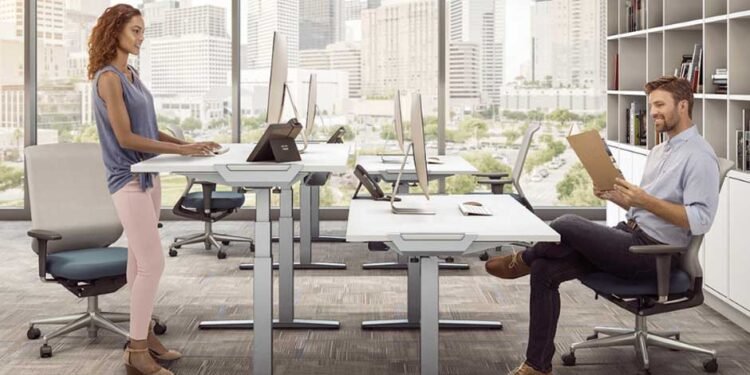In the ever-evolving landscape of modern workspaces, flexibility has emerged as a defining feature of successful office design. As businesses in New Zealand respond to shifting work habits—be it hybrid schedules, hot-desking, or collaborative project spaces—the need for adaptable, sustainable, and functional furniture has become more pressing than ever.
From start-ups seeking affordable solutions to established firms pursuing sustainable office design, today’s office furniture must do more than just fill a space. It must enhance productivity, foster wellbeing, and reflect a company’s values. So, what does that actually look like in practice?
Agile Workspaces Demand Modular Solutions
One of the core principles of a flexible office is agility. Businesses want to reconfigure layouts quickly without the hassle of extensive installations or downtime. As such, modular furniture—such as desks that connect or separate easily, lightweight storage units, and mobile dividers—is becoming indispensable.
These modular pieces support multiple working styles, from focused solo work to dynamic team sessions. They also allow businesses to grow or downsize without having to overhaul their entire furniture inventory, making them cost-effective in the long term.
Ergonomics and Employee Wellbeing Take Centre Stage
Flexible does not mean makeshift. On the contrary, providing quality, ergonomic furniture is more crucial than ever in adaptable spaces. Employees may use different desks or chairs each day, so it’s vital that every station offers the necessary support to reduce strain and promote good posture.
This includes adjustable chairs, sit-stand desks, and screen arms that accommodate various heights and preferences. Businesses that invest in ergonomic pieces signal to staff that their health and comfort matter—an increasingly important factor in attracting and retaining talent.
Sustainability Is a Business Imperative
As organisations face growing pressure to demonstrate environmental responsibility, the sustainability of office furniture has become a decisive factor in purchasing decisions. Choosing repurposed or second-hand furniture not only reduces environmental impact but also helps businesses align with the principles of the circular economy.
This trend goes beyond simply reusing items. Many companies are integrating reclaimed materials into modern designs, creating stylish yet eco-conscious workspaces. By opting for furniture with a story, businesses can reinforce their sustainability credentials in both practical and visual ways.
Storage That Moves with the Team
The rise of hot-desking and hybrid schedules has also transformed the need for personal and shared storage. Traditional filing cabinets are out; instead, offices now need lockable mobile pedestals, open shelving for shared resources, and smart storage that can be easily moved or reconfigured.
Flexible storage solutions empower employees to take ownership of their workstations, however temporary they may be, while keeping the overall space tidy and organised. It’s a small detail that makes a significant difference to the daily user experience.
Blending Style with Functionality
Gone are the days of sterile, grey cubicles. Today’s flexible offices prioritise aesthetics as much as functionality. Furniture should be visually appealing, complementing the company’s brand identity while being robust enough to handle frequent reconfiguration.
Think multi-purpose furniture that looks great in open-plan areas, meeting rooms, or breakout zones. From upholstered booths that double as private workspaces to coffee tables with hidden storage, stylish adaptability is the name of the game.
Cost-Effectiveness Without Compromising Quality
As businesses navigate economic uncertainty, value for money is a top priority. The key lies in finding high-quality furniture at a lower price point without sacrificing functionality or design. This is where the market for pre-owned furniture shines.
By sourcing items from reputable suppliers, businesses can achieve professional-looking offices on a budget. One popular route is exploring options for second-hand office furniture, which allows for substantial cost savings while maintaining standards of comfort and style.
Futureproofing with Versatility
Perhaps the most important quality of any office furniture today is versatility. As workstyles continue to change—possibly in ways we can’t yet predict—furniture must be ready to meet tomorrow’s challenges. This could mean choosing desks that expand, screens that double as whiteboards, or seating that adapts to new collaboration zones.
Forward-thinking businesses recognise that flexibility in their physical environment mirrors the agility needed to thrive in a dynamic economy.
The Diverse Needs of Flexible Offices
The needs of flexible offices are diverse, yet interconnected, focusing on mobility, comfort, sustainability, and design. By embracing furniture that supports these goals, businesses in New Zealand can create agile workspaces that not only serve current needs but also adapt effortlessly to whatever the future holds.
From modular pieces to eco-friendly solutions, the right furniture choices can transform how teams work, collaborate, and feel in the office.












